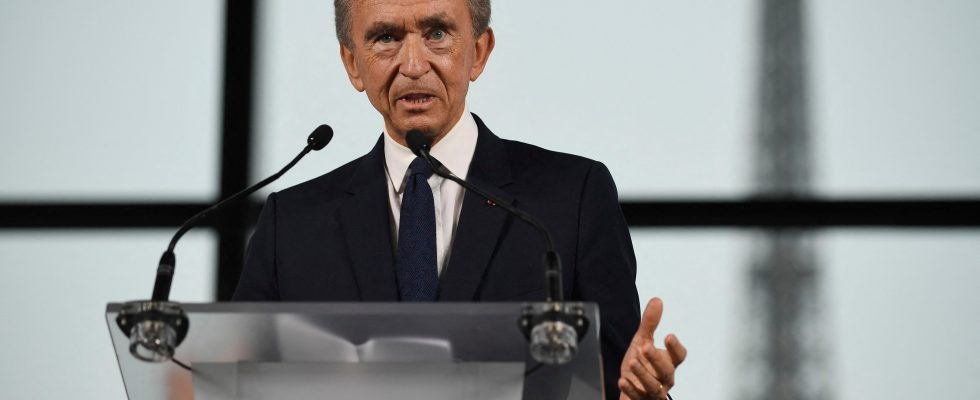Responding to the call of the Restos du Coeur, in great financial difficulty, Bernard Arnault, the world’s second largest fortune, announced its decision to make a donation of 10 million euros (tax free) in favor of the association. A mind unaccustomed to French obsessions could have expected unanimously grateful comments from the political class and opinion makers. It was not so since part of the left was moved by a gesture which it considers insufficient, interested and paternalistic. This reaction certainly reflects an understandable point of view on the nature of public solidarity, but also a powerful resentment towards wealth.
>> Subscribe to Expression, the newsletter of ideas from L’Express by clicking here.
The criticisms leveled at Bernard Arnault are varied. We read, for example, that his fortune is so great that it would be as if “a citizen who accumulated 2,150 euros in his current account gave 10 cents“. We also hear that this sum being modest (10 million euros!), its transfer is only a communication operation. But, above all, we oppose, as the LFI deputy Alexis Corbière did, the private charity to public solidarity. “We abolished the ISF and we realize today that we need more solidarity,” he insisted on LCI. The Republic is solidarity. The charitable system is before the Republic, it is ‘to your good heart, my dear master’.” In other words, a good part of the left would like Bernard Arnault, instead of paying his donation, pays a heavier tax.
This last sting, although caricatured, invites us to question the desirable balance, in our societies, between social assistance organized by the State and personal generosity. The first undoubtedly has many advantages. The fruit of a national consensus, it is stable, potentially accessible to all and impersonal. The second has reciprocal defects: the causes subsidized, the amounts, the regularity, the conditions of access vary according to the choices and even the whims of the donors. Furthermore, private generosity creates a debt, at least a moral one, in its recipient. This is why a society that relied solely on charity to help its most needy members would be brutal.
However, if a society with a large social state like ours found itself deprived of charity, it would become inhumane. The “solidarity” State also has its preferences: it chooses, and not always democratically, its causes, the amount of aid, its regularity and the conditions of access to it. This is why the existence of a free sphere of gift guarantees a sort of “counter-power of causes”. By existing through numerous associations, which we forget are intended to be autonomous from the State and not to be systematically financed by it, this sphere allows projects to find their benefactors, and for benefactors to put bringing forward issues that are too little known, causes that are already known to be taken into account differently, and often in a more concrete way than a ministry or a grant can do. The existence of private donations reminds us that mutual aid is above all a human affair and that it contributes to the vitality of a free society. And even if a donor is hypocritical, interested or vain (in this case, Arnault should not have publicized his gesture, because virtue must be discreet), the practical consequences of his generosity on the lives of thousands of people should be enough to arouse gratitude.
Provided that the privileged are punished…
But this is where the problem lies. Preferring that wealthy people give nothing on the pretext that they could give more if taxes were hypothetically higher betrays a hatred of the good that these people can do rather than of the evil that is attributed to them. While capitalists are supposed to be selfish, brutal and greedy, the fact that some of them are not is, for their detractors, unbearable, and adds to the criticism usually made of them: that of being… rich.
To put it another way, at the root of the progressive critique of wealth is pure and simple envy. Because of this “pain that we feel at the sight of the success of our fellow men”, according to Aristotle’s definition, we want to impoverish the rich (and more particularly the capitalist rather than the footballer or the movie star), even if the poor gain no benefit, as long as the privileged are punished. But envy is a shameful sin. Unable to admit it or express gratitude, the left is left with nothing but persiflage. Whatever he does, the rich man will always be wrong. Or, as Margaret Thatcher aptly remarked in her time: “If my detractors saw me walking on the Thames, they would say it’s because I can’t swim.”
